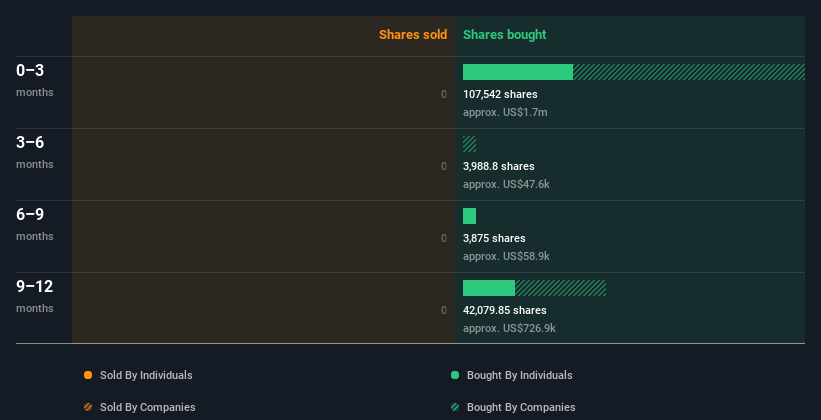comScore Insiders Added US$878.6k Of Stock To Their Holdings
Generally, when a single insider buys stock, it is usually not a big deal. However, when several insiders are buying, like in the case of comScore, Inc. (NASDAQ:SCOR), it sends a favourable message to the company's shareholders.
While we would never suggest that investors should base their decisions solely on what the directors of a company have been doing, we do think it is perfectly logical to keep tabs on what insiders are doing.
View our latest analysis for comScore
The Last 12 Months Of Insider Transactions At comScore
Over the last year, we can see that the biggest insider purchase was by insider Matthew McLaughlin for US$406k worth of shares, at about US$16.23 per share. That means that even when the share price was higher than US$14.45 (the recent price), an insider wanted to purchase shares. It's very possible they regret the purchase, but it's more likely they are bullish about the company. We always take careful note of the price insiders pay when purchasing shares. As a general rule, we feel more positive about a stock if insiders have bought shares at above current prices, because that suggests they viewed the stock as good value, even at a higher price.
While comScore insiders bought shares during the last year, they didn't sell. The chart below shows insider transactions (by companies and individuals) over the last year. If you want to know exactly who sold, for how much, and when, simply click on the graph below!
There are plenty of other companies that have insiders buying up shares. You probably do not want to miss this free list of growing companies that insiders are buying.
comScore Insiders Bought Stock Recently
It's good to see that comScore insiders have made notable investments in the company's shares. Not only was there no selling that we can see, but they collectively bought US$530k worth of shares. This makes one think the business has some good points.
Insider Ownership
For a common shareholder, it is worth checking how many shares are held by company insiders. Usually, the higher the insider ownership, the more likely it is that insiders will be incentivised to build the company for the long term. Insiders own 8.1% of comScore shares, worth about US$5.6m, according to our data. We do generally prefer see higher levels of insider ownership.
So What Does This Data Suggest About comScore Insiders?
The recent insider purchases are heartening. And an analysis of the transactions over the last year also gives us confidence. However, we note that the company didn't make a profit over the last twelve months, which makes us cautious. We would certainly prefer see higher levels of insider ownership but analysis of the insider transactions suggests that comScore insiders are expecting a bright future. So while it's helpful to know what insiders are doing in terms of buying or selling, it's also helpful to know the risks that a particular company is facing. Case in point: We've spotted 2 warning signs for comScore you should be aware of.
Of course, you might find a fantastic investment by looking elsewhere. So take a peek at this free list of interesting companies.
For the purposes of this article, insiders are those individuals who report their transactions to the relevant regulatory body. We currently account for open market transactions and private dispositions of direct interests only, but not derivative transactions or indirect interests.
Have feedback on this article? Concerned about the content? Get in touch with us directly. Alternatively, email editorial-team (at) simplywallst.com.
This article by Simply Wall St is general in nature. We provide commentary based on historical data and analyst forecasts only using an unbiased methodology and our articles are not intended to be financial advice. It does not constitute a recommendation to buy or sell any stock, and does not take account of your objectives, or your financial situation. We aim to bring you long-term focused analysis driven by fundamental data. Note that our analysis may not factor in the latest price-sensitive company announcements or qualitative material. Simply Wall St has no position in any stocks mentioned.

 Yahoo Finance
Yahoo Finance 
